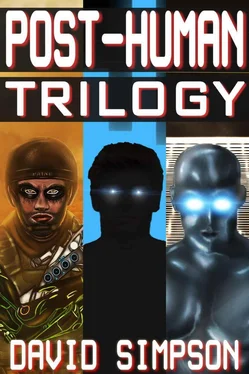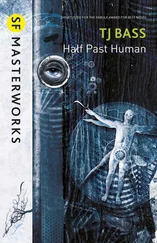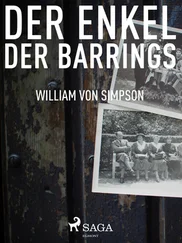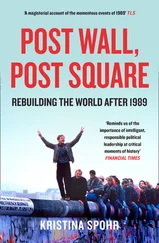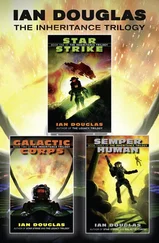The metal door swung open behind Aldous, a high-pitched squeak accompanying the movement, as a large man in a dark suit and navy-blue tie entered. “I’m sorry to interrupt, Professor, but it’s time for me to proceed with the interview,” the man announced.
“No trouble at all, my good man,” Aldous replied. “I’m sure Samantha is eager to get this misunderstanding behind her as quickly as possible.” He turned to Samantha and flashed a warm, calming smile. “I’ll see you soon, Sam.”
Aldous left, and the man in the suit closed the door behind him. He wore aug glasses and appeared to be reading a file. “I’m Agent O’Brien,” he announced matter-of-factly.
Samantha laughed but quickly stifled it.
“Something funny?” O’Brien replied, his face stone cold.
Samantha shrugged. “Are you serious? O’Brien is here to interrogate me?”
O’Brien’s face remained unmoving.
Samantha pointed to the door. “You know that door is marked 101 on the outside?”
O’Brien’s face didn’t twitch. “Is that supposed to mean something?”
She shook her head and inhaled deeply. “You really have no idea what role you’re playing in history, do you?”
Finally, O’Brien cocked his head to one side, curious. “What role is that, Professor Emilson?”
“Orwellian. It’s right in front of you, but you can’t even see it.”
“Orwellian?” O’Brien removed a Bluetooth pen from his pocket and began to write on a computer-generated notepad that only he could see through his aug glasses.
“As in 1984 . George Orwell.”
“Ah,” O’Brien said, finally understanding the reference. “Never read it.”
“No kidding.”
“I do know what it’s about though—big government controlling the heroic populace. Is that correct?”
“Sure.”
“A Luddite government perhaps?”
“You really oughtta read the damn book.”
“As you have, Professor Emilson? Will I then see our government as evil and wish to rebel against it, like the hero of 1984 ?” It was clear from his rapidly moving eyes that O’Brien was fumbling to look up 1984 on Wikipedia or Sparknotes like a C- student, desperate before a final exam. “Like Winston?” he announced, hoping she didn’t recognize his use of a technological cheat sheet.
Samantha looked up at the ceiling and placed her hands on top of her head as she exhaled a long, frustrated sigh. “I’m in Hell.”
The SOLO team stood only inches apart from one another, all of them facing the starboard side of SpaceShip3 as they waited for the drop order. They were fully garbed in their SOLO suits, the Nomex outer shell giving the suits a sleek, wet look. The exoskeletons component of the suits were designed with structural batteries that took the shape of working parts so no single, heavy battery pack was necessary. The exoskeletons were imperative so each man could carry his large backpack, which housed his parachute and weaponry. The fuselage had mostly been depressurized, and the members of the team—five humans plus Robbie—stood at the ready, the humans flexing nervous fingers and toes inside their life-supporting suits. SpaceShip3’s pilot periodically engaged the hybrid rocket thrusters to keep the craft over the target area as the group waited for word that the fallout had descended to an acceptable level in the landing zone.
“Listen up!” Wilson began, keeping his position at point in the triangular formation in which the SOLO members stood. “Remember, your SOLO suit doubles as a nuclear, biological, chemical protection suit, but we’ve never jumped into fresh fallout like this before. The NBC suits will increase our exposure time, but even they have their limits. The Kevlar woven into the material isn’t likely to be enough to stop the armor-piercing ammo the Chinese have, so if you take a bullet down there, don’t try to stay in the fight. Get your ass to the extraction point as soon as possible, because you don’t want to see what that radiation exposure would do to you. Is that clear?”
“Hooah!”
“Okay, we just got our orders. We’re sixty seconds to drop time,” Wilson relayed excitedly. A green timer began counting down on the OLED heads up displays on each of their visors. “It’s time to stop breathing, boys. Hold your breath and activate your respirocytes.”
Craig tried to resist the instinctive urge to take in a last gulp of air, but the SOLO suits only had a minimal air supply—just enough to make it possible for the team members to speak to one another. Instead, he closed his eyes meditatively and concentrated on not taking in another breath. Just as before, only hours earlier in the presence of the doctor with the beautiful smile, Craig found himself marveling that he could live without air.
The green timer display dropped below thirty seconds.
“You holdin’ up okay, Doc?” Wilson asked over his shoulder.
“Hell yeah,” Craig replied. He turned to Robbie. “Robbie, you stay on my six until we reach the surface, understand?”
“I understand, Captain Emilson,” Robbie replied.
Craig turned back and faced the same direction as the rest of the team. In only ten seconds, the bottom of the ship would open up in trap-door fashion, and they would begin their descent.
“Remember, Doc,” Wilson barked, “when the door opens, you won’t even feel like you’re falling for the first thirty seconds, but keep an eye on your time gauge. If you aren’t in the delta position by then, you’re a goner.”
The count reached zero.
“Away!” announced the crackling, radio voice of the pilot.
The doors swung open and the small pressure vacuum sucked the six figures out into space in their triangle formation. Craig was the far man on the left.
The silence was perfect—not even the familiar sound of his own breathing accompanied him. Wilson had been right: As the seconds ticked by on his HUD, Craig didn’t feel as though he were falling at all. The formation seemed to be a tableau, hanging in the blackness of space, the azure blue of the Earth mixed with the warm brown of the Asian continent below. The other members of the SOLO team expertly adjusted their trajectories, each man putting himself into the critical twenty-five-degree angle to control his speed and drag when they hit the atmosphere. Craig awkwardly performed the maneuvers needed to match their delta positions—movements much more difficult to perform in a supersonic spacesuit that felt like a sleeping bag with arms than they were in his familiar HALO suit.
The seconds continued to tick by as the telemetry, communications, and pressure readouts flashed on the OLED of his HUD. The thirty-second mark was reached, and the aneroids in his suit reacted to the atmospheric pressure as they began to hit the outer rim of the atmosphere, the psi remaining at 3.5 to keep him comfortable and conscious.
“Good work, Doc. You’re doing fine,” said the reassuring voice of Commander Wilson over the radio. Craig looked down at the commander, just a couple of meters below him, still the point of their formation. “Keep those arms tucked. The pressure won’t feel like much at first, but when we hit Mach 1, the turbulence will be powerful. Even a little twitch can send you into a fatal tailspin.”
“Noted,” Craig replied. He wanted to gulp a nervous breath of air but resisted the urge. The HUD read just over four minutes remaining on their descent. Their altitude was dropping dramatically as their speed approached Mach 1.
“Sonic boom is imminent, boys! Steady!” Wilson shouted.
The SOLO suits were equipped with sound dampeners in the helmets to dull the thunderous clap of the sonic boom, but they couldn’t do much to curtail the turbulence. Craig braced every muscle in his body as the speedometer continued to climb. He closed his eyes and clenched his jaw.
Читать дальше
